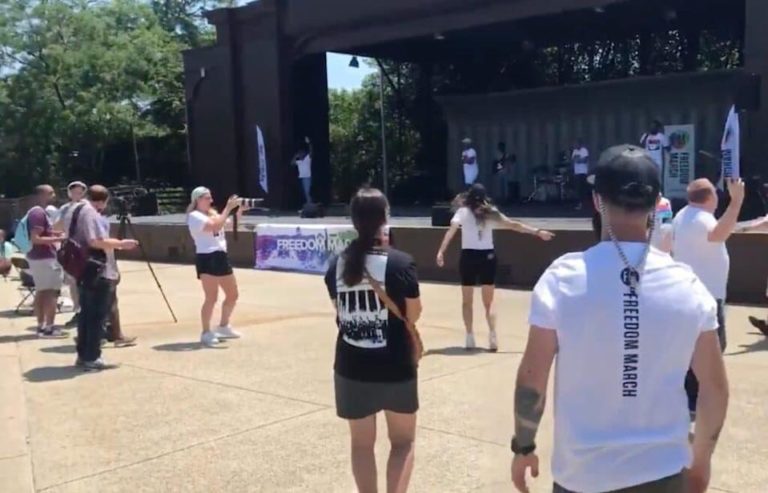

A group of “ex-gay” activists staged a “freedom march” in Washington DC – but just a handful of people turned up.
The group, which calls itself the “Changed Movement”, hosted its march in the Sylvan Theatre in Washington DC on Saturday (5 June) to give a voice to “former LGBTQ individuals” who want to celebrate their “freedom in Christ”.
Changed Movement promoted the event on social media, but it did little to attract revellers. Michael Patrick Key, photo editor at The Washington Blade, covered the “freedom march” and shared a video on Twitter.
The clip shows a tiny group of people gathered, some dancing, while a band performs a Christian rock song.
Many of those who commented on the clip expressed sadness for the “ex-gay” activists. “Tortured souls,” one Twitter user wrote, while another used the opportunity to reflect on the impact religion has on the LGBT+ community.
Changed Movement is made up of Christians ‘with LGBTQ in our past’
In a statement released ahead of the event, Changed Movement – which claims LGBT+ people can change their identities – said it was travelling to Washington DC “to appeal to Congress to focus on human dignity, not identity politics”.
“We are Christians with LGBTQ in our past,” Elizabeth Woning, co-founder of the organisation said. “Many, like us, have changed. We left LGBTQ because we wanted to. Article 18 of the Universal Declaration of Human Rights affirms we have the right to live out what we believe.
“Fair treatment in America shouldn’t rest with one’s social identity, like LGBTQ or even religious beliefs, but with respect for the dignity of every person.”
Changed Movement is reportedly meeting with lawmakers to state its opposition to the Equality Act, which would grant greater protections to LGBT+ people in the United States. The group is also staunchly opposed to any ban on conversion therapy, despite the fact that the practice has been widely discredited by almost every major psychiatric body.
In a post on its website, Changed Movement argues LGBT+ people should have “the right to the counselling of one’s choosing” and they should be free to follow “religious convictions away from LGBTQ identity”.
The group also wants the right to “publicly declare alternative views of LGBTQ experience without being labelled a ‘hate group’.”